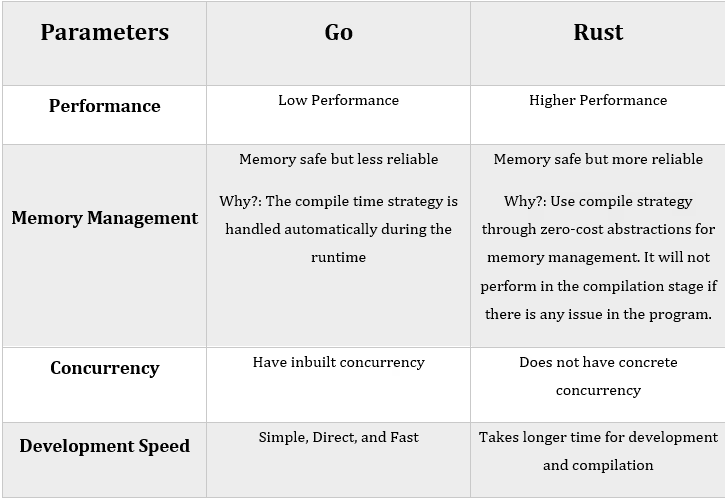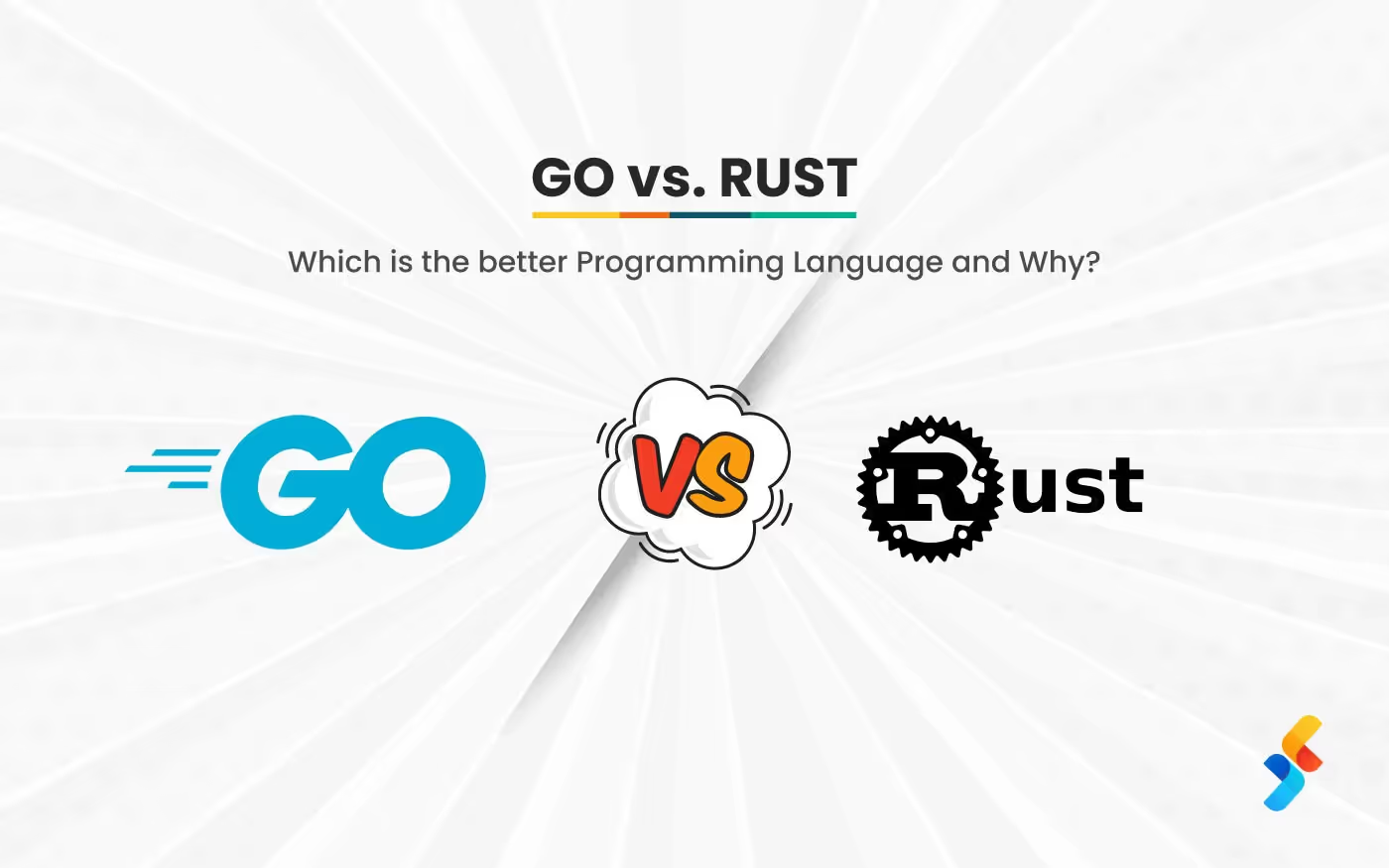Summary: Both Rust and Go are system-level programming languages. They have a lot in common, yet there exist some significant differences between them. In this article, we’ll be briefing you about both the compelling programming languages and how they vary from each other.
The right programming language is essential to thrive in the evolving IT landscape. It helps to deliver a compelling user experience and ensures business growth. With so many new programming languages, it is tough to select one that suits best. Rust and Go are the two most powerful and versatile programming languages in the past decade. But, which is best to develop reliable and friendly frameworks or apps. Confused? Let’s delve deeper and identify which is best for your development need.

Go Programming Language
Go or Golang is a statically-typed, open-source programming language. It makes server-side applications robust and effective. Go is expressive, high performing, and fastest-growing language of 2019. It acts as a compiler that compiles the program and ensures transformation & compatibility. You can write code parallel to your code to make it simple and straightforward.
Popular for: Inbuilt Concurrency, Dependency Management, and Garbage Collection
Advantages of Go
- Excellent Documentation
- Easy Threads of Goroutines
- Static Analysis Tools
- Flexible and Concurrent Process
- Robust Interoperability
- Profiling Framework and Built-in Testing
- Availability of Standard and Broad Libraries
- Best Suitable for Writing DevOps Tasks and Microservices
Rust Programming Language
Rust is an extension of one of the ML languages. It delivers better security, greater modularity, performance, and improved parallelism. It allows you to write codes fast with less memory. Mozilla, a renowned web browser, is based on Rust. Writing a program in Rust is a blend of Scala, Haskell, and Ruby programming languages. You can use Rust for systems programming.
Advantages of Rust
- Zero-Cost Abstraction
- Extensive Support Community
- Predictable Run-time Behavior
- Achieve More with Less Coding
- Faster Debugging and Testing
- Robust Performance and High Run Speed
- Secured Memory & Less Garbage
- Better Code Execution
Now that you have a clear understanding of both Rust & Go, let’s have a quick overview of how they varies.
Comparison: Go vs. Rust

Choose Go When:
- ‘Higher-Performance’ is your top priority.
- You require interoperability with C.
- When you have maintenance budget constraints.
- When you need to launch product quickly.
Choose Rust When:
- Readability, Simplicity, and Uniformity are crucial for you.
- You need ‘Guaranteed Memory Safety’
- When ‘Application Performance’ is your priority
- When you have a ‘Robust Development Team’
Conclusion
Who won the battle? Well, both the programming languages are best—extremely versatile and competitive. It’s up to you to select the one that best suits your development and business needs. Successive Digital is a pioneer in web and mobile app development. Our technology-driven and creative solutions add value to your performance-savvy hardware systems and enterprise applications. Contact our experts, to get started with your app development journey.
.avif)

.webp)




.avif)



.jpg)









